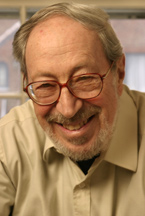Ed Schein has been a great support to us at CoachingOurselves. Following is a short piece he wrote describing his perspective:
CoachingOurselves -- The best way to learn
by Ed Schein
As a psychology major I learned that the most important work in psychology was research on how learning actually happens. The basic model is simple—you learn from experience. You have some kind of goal, you try something and then you get feedback on whether or not you are closer to your goal. If you are, you try that again. If you are not, you try something different. What you decide to try is determined either by so called “trial and error” or some kind of imitation of a role model. Sounds simple enough, but all the elements are in fact complicated.
First, it is not always obvious what your goal should be, so setting a goal is itself a learning process which requires input and feedback from others. That is one reason why more learning occurs in groups, there are more sources of feedback to give you clues as to what you need to learn. Second, once you have a goal, you will discover that there are many things you can try to move toward it. Here it helps to have others as role models or to test ideas on others before you commit to a course of action. And, finally, the feedback we need when we learn something relatively complicated is best if it comes from multiple sources.
I found all of this out when I first went to a Human Relations workshop at Bethel, Maine in 1959. My Ph.D. in Social Psychology had taught me all that research had uncovered about group dynamics. Then in this workshop I encountered something called a T-group (T for training later called “sensitivity training”) and discovered that in the unstructured meetings I learned all sorts of things I did not know. In fact the premise of the workshop was to have experiences first, then lectures and readings. In these workshops I also learned that groups have to learn how to learn. You can’t just tell someone “you need to be a better communicator” because he or she either might not know what you are talking about or be really offended. So we learned in the group about creating a climate in which we could gradually become more open with each other and, once we achieved some mutual acceptance, we could give each other feedback which helped set learning goals and learning processes.
 |
| CoachingOurselves Group |
The group was important because different members had different perceptions of what was going on which taught us a lot about perception and communication. Individual coaching can help once we have a clear focus, but when we try to learn more complex social processes and new ways of managing, learning how to become a learning group is critical. I think of a group as a “mutual help society” in which the learning is enhanced by our recognition that we are there to help each other to learn.
I think the greatest potential of CoachingOurselves is the potential in the group process of Helping Each Other to learn. Should you have a group process coach? Yes, but each member can play this role from time to time. You don’t need an outsider, you only need to identify the role and rotate it around the group. Most of us have the skills if we accept the role of helping the group to become a learning unit.
In conclusion, CoachingOurselves as a group process always has a double agenda:
- learning the content of a given module; and
- learning how to learn as a group.
In my view it is this double agenda that makes CoachingOurselves especially relevant to organizations today.
Visit http://www.CoachingOurselves.com/ to learn more, or to purchase CoachingOurselves modules for use with your team visit CoachingOurselves for your team. If you wish to read further go to my book Helping: How to offer, give and receive help (2009) and Process Consultation Revisited (1999). Schein, E.H. (1999) Process Consultation Revisited. Prentice-Hall. Schein, E.H. (2009) Helping: How to offer, give and receive help. Berrett/Kohler.

No comments:
Post a Comment